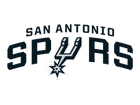
San Antonio Mayor Gina Ortiz Jones didn’t hold back during her first Town Hall of the new year, blasting Spurs owner and Dell Technologies founder Michael Dell for making a $6 billion donation in December to the White House’s Trump accounts program. “Michael Dell is an owner of the Spurs,” Jones said. “I wonder if he was able to do that because the city gave up — and the county gave up — so much money for the [new Spurs] arena. Because if you can give $6 billion for these accounts, you could have paid for your own arena.”
A White House event in which commissioners from five major sports leagues were to appear alongside President Donald Trump as he unveiled the latest plans for the celebration of the United States’ 250th anniversary has been postponed due to adverse weather conditions, according to four people familiar with planning for the event. The event was scheduled for Tuesday, but remained subject to change due to the weather and the president’s schedule. According to the people familiar with the event plans, who spoke on condition of anonymity Monday because they were not authorized to discuss the event publicly, the White House is seeking to reschedule the event, which it would prefer to do ahead of the Super Bowl. That may prove difficult, however, due to the continuing low temperatures and the challenge of ensuring all of those involved in the event can make it to the Oval Office at the same time on the same day.

ICE’s actions have been defended repeatedly by Bovino, Vance, Trump and DHS as necessary due to crime and danger caused by immigrants in the Twin Cities. It’s a familiar scenario to Chicagoans, who saw their city branded as a “hellhole” and “haven for criminals” during similar ICE campaigns over the last four months. Jones doesn’t believe this depiction of his hometown. He sees a different truth that doesn’t reflect federal officials’ rhetoric focused on violence. “People here know that it’s an amazing city built by amazing people,” Jones said. “It’s a great community here. People look out and stick up for one another. That’s what we see and feel. After some of the horrific things that happened here in the past five or six years, the community continues to come together and stick up for one another. That’s just how this city is.”
The commissioners of four major U.S. sports leagues are in conversations over being present at the Oval Office next week when President Donald Trump unveils the latest plans regarding the celebration of the 250th anniversary of the United States. Four people briefed on the planning, who spoke on condition of anonymity because they were not authorized to publicly discuss the matter, confirmed to The Athletic that the NFL’s Roger Goodell, the NBA’s Adam Silver, the NHL’s Gary Bettman and MLB’s Rob Manfred are currently set to attend the event. The exact date may be subject to change in accordance with the president’s schedule and the schedules of those expected to be in attendance. The White House and the four major leagues did not respond to requests for comment.
The commissioners of four major U.S. sports leagues are in conversations over being present at the Oval Office next week when President Donald Trump unveils the latest plans regarding the celebration of the 250th anniversary of the United States. Four people briefed on the planning, who spoke on condition of anonymity because they were not authorized to publicly discuss the matter, confirmed to The Athletic that the NFL’s Roger Goodell, the NBA’s Adam Silver, the NHL’s Gary Bettman and MLB’s Rob Manfred are currently set to attend the event.
Advertisement
Moments before tipoff at Sunday’s NBA game in London, a heckler’s outburst about Greenland drew cheers from the crowd, highlighting growing tensions over President Donald Trump’s attempts to acquire the Arctic island. American singer Vanessa Williams was midway through her rendition of the “Star-Spangled Banner” at the O2 Arena — just before the Orlando Magic faced the Memphis Grizzlies — when the politically charged interruption took place. “Leave Greenland alone!” a man yelled from the stands, eliciting some claps, whistles and cheers from fellow spectators, video footage shows.
Former NBA player and member of the United States House of Representatives Tom McMillen reacted with alleged shock when confronted with his name appearing in the Jeffrey Epstein files. McMillen, 73, was a guest on the “Pablo Torre Finds Out” podcast on Tuesday, December 2, when he was confronted with his name appearing in the files, which were released by Congress in November.
McMillen’s handwritten name showed up in a 1993 flight log, weeks after he left Congress after serving the state of Maryland for six years and two months after he was seen chatting with Epstein and President Donald Trump in an NBC video to promote Trump’s Mar-a-Lago, which is also featured during the podcast episode. “I don’t recall, and I don’t think it’s accurate. I don’t recall,” said McMillen, who joined the podcast via video call. McMillen played in the NBA from 1975 to 1986 with the Buffalo Braves, New York Knicks, Atlanta Hawks and Washington Bullets. He served Maryland’s 4th District in the United States of Representatives from 1987 to 1993.
McMillen then announced he would be ending the interview abruptly. “I’m going to leave,” McMillen told Torre. “I’m sorry, I wanted to talk about the good things and some of the things about college sports and so forth.” McMillen added, “This is so long ago. I bet you don’t recall 35 years ago. So, let’s sign off. Give me your final question. What is it?” Torre asked McMillen if he had any “final comment” to help set the record straight. “I haven’t had any relationship with [Epstein] since the early ‘90s,” McMillen said. “So, I think that’s it. A lot of people knew him. I barely knew him. So, let’s move on.”

The official account for the White House on X posted the altered logo on Tuesday hours after Mamdani beat Andrew Cuomo—who was endorsed by President Donald Trump—and Curtis Sliwa in the mayoral race. The altered Knicks logo read “Trump Is Your President.” By Wednesday, the post had been deleted. A source close to the Knicks tells Front Office Sports that the team reached out to the White House about the post, and they voluntarily took it down. “The Knicks remain neutral on political matters,” the team said in a statement to FOS on Wednesday. “We hope all our elected officials, whether current or recently elected, do a great job in office.”
Advertisement

Chauncey Billups hires Donald Trump's former lawyer
Portland Trail Blazers head coach Chauncey Billups has hired renowned trial lawyer Marc Mukasey to represent him in a federal investigation into illegal gambling, according to two people who were briefed on the matter. Mukasey, a former prosecutor for the U.S. Attorney’s Office in the Southern District of New York who specializes in white-collar defense, is the son of former U.S. Attorney General Michael Mukasey. He has a long history of taking on high-profile cases, most notably as an attorney for President Donald Trump in recent years. His defense of Navy SEAL Edward Gallagher in 2019 led to an acquittal of murder charges. Mukasey also represented Sam Bankman-Fried, the founder of bankrupt cryptocurrency exchange FTX, during sentencing following Bankman-Fried’s conviction on fraud and conspiracy charges.

Former Charlotte Hornets big man PJ Washington and his wife, Alisah, are selling their Lake Norman waterfront mansion at President Donald Trump’s golf course for $5.8 million, according to its listing by eXp Realty agent Joe Carteret.
Enes Kanter: 'Adam Silver is literally selling this league to the biggest dictatorship in the world'
The NBA has obviously not been a fan of President Trump, and they’ve been all in on China. These are some of the issues you dealt with when you were a player, and you pushed back on China — and then were pushed out." Enes Kanter: "It's crazy to me. When they put us in the NBA bubble, Adam Silver himself said, 'This is basketball. Let’s talk about the problems that are happening in America.' Everyone was talking about the problems happening here, and Adam Silver and the NBA knew it wasn’t going to affect them. Money and business — more people watched NBA games in China than the American population last year. When I came out and started to talk about China’s human rights violations, they tried to silence me. It’s a shame — because Adam Silver is literally selling this league to the biggest dictatorship in the world. So that’s why I feel like he should step down as commissioner."
MrBuckBuck: FBI Director Kash Patel fires back at Stephen A. Smith claiming the NBA gambling bust was "REVENGE" from President Trump for the NBA's left-wing activism: "That may be the single DUMBST thing I've ever heard out of anyone in modern history. And I live most of my time in Washington, D.C."
FBI Director Kash Patel fires back at Stephen A. Smith claiming the NBA gambling bust was "REVENGE" from President Trump for the NBA's left-wing activism: "That may be the single DUMBST thing I've ever heard out of anyone in modern history. And I live most of my time in Washington, D.C."
— MrBuckBuck (@mrbuckbucknba.bsky.social) 2025-10-24T08:40:22.759Z